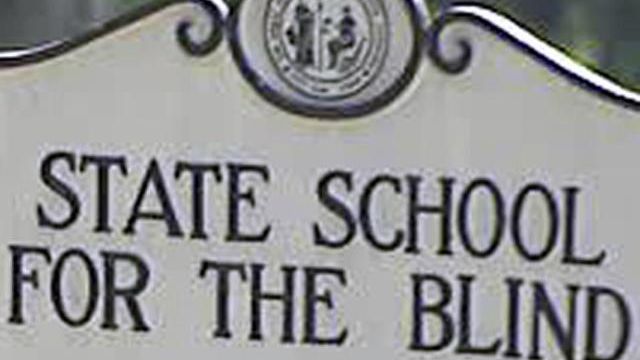State could close school for blind in Raleigh
In public school, Wenisha Richardson felt disregarded.
"I was the outcast. I sat in the back of the class," Richardson said. "I was that kid sitting in the back of the classroom that couldn't read."
But things changed when she started attending the Governor Morehead School for the Blind in Raleigh.
On Wednesday, Richardson and other students pleaded to keep the state's only school for the blind open during a public hearing in downtown Raleigh.
State budget cuts mandate that next July, one of three schools for the visually and hearing impaired will close. The other schools in danger are the Eastern North Carolina School for the Deaf in Wilson and the North Carolina School for the Deaf in Morganton.
Services for the 220 students who attend the residential schools will be consolidated at the remaining two schools.
"It is painful to think that one of the schools could close. It is unfortunate we have reached this point in history in North Carolina. But we certainly want to ensure we can keep this one as it is the only one serving the visually impaired population," Morehead graduate James Benton said Wednesday.
Raleigh Mayor Charles Meeker spoke in support of the Morehead School for the Blind during the hearing. He cited the school's closed-off campus, access to state services for the blind and deaf, central location in the state and access to transportation systems.
Talk of closing or merging the schools to save money has arisen during budget shortfalls as far back as 2001, but so far, spirited support from students and families has helped keep them open. Last year, the schools cut costs by $1 million, including cutting pay, having students return later from weekends at home and dropping charter bus services.
Students at whichever school is closed could attend one of the two remaining schools or return to their home county's public school system.
Gary Farmer, a former dean of students at the Wilson school, sits on the North Carolina Department of Public Instruction committee that will decide which school to close by Jan. 15.
"The Eastern school could easily absorb the educational program for the blind," Farmer said Wednesday.
Supporters for all the schools have argued that they are located where the students are most comfortable. Many of the students have other special needs and disabilities and attend the schools for the deaf and blind because they had a difficult time succeeding in their local school district.
Morehead student Cassidy Hooper said public school did not have the resources she needed.
"I did not want to have an education where I could not write or read anything by myself," Hooper said.
Closing and consolidating of the schools could increase class sizes and travel time for dozens of students.
Sandy Turner, the president of the North Carolina School for the Deaf Foundation called on legislators to keep the schools open.
"The services offered on these campuses cannot be duplicated in public schools," Turner said in a statement. "It is time for the hearing and the sighted citizens o North Carolina to stand shoulder to shoulder with our deaf and blind citizens and insist that funding these residential schools continues."
The public can submit comments online until Sept. 30.
Public hearings have been held in Wilson and Morganton over the past two weeks.











